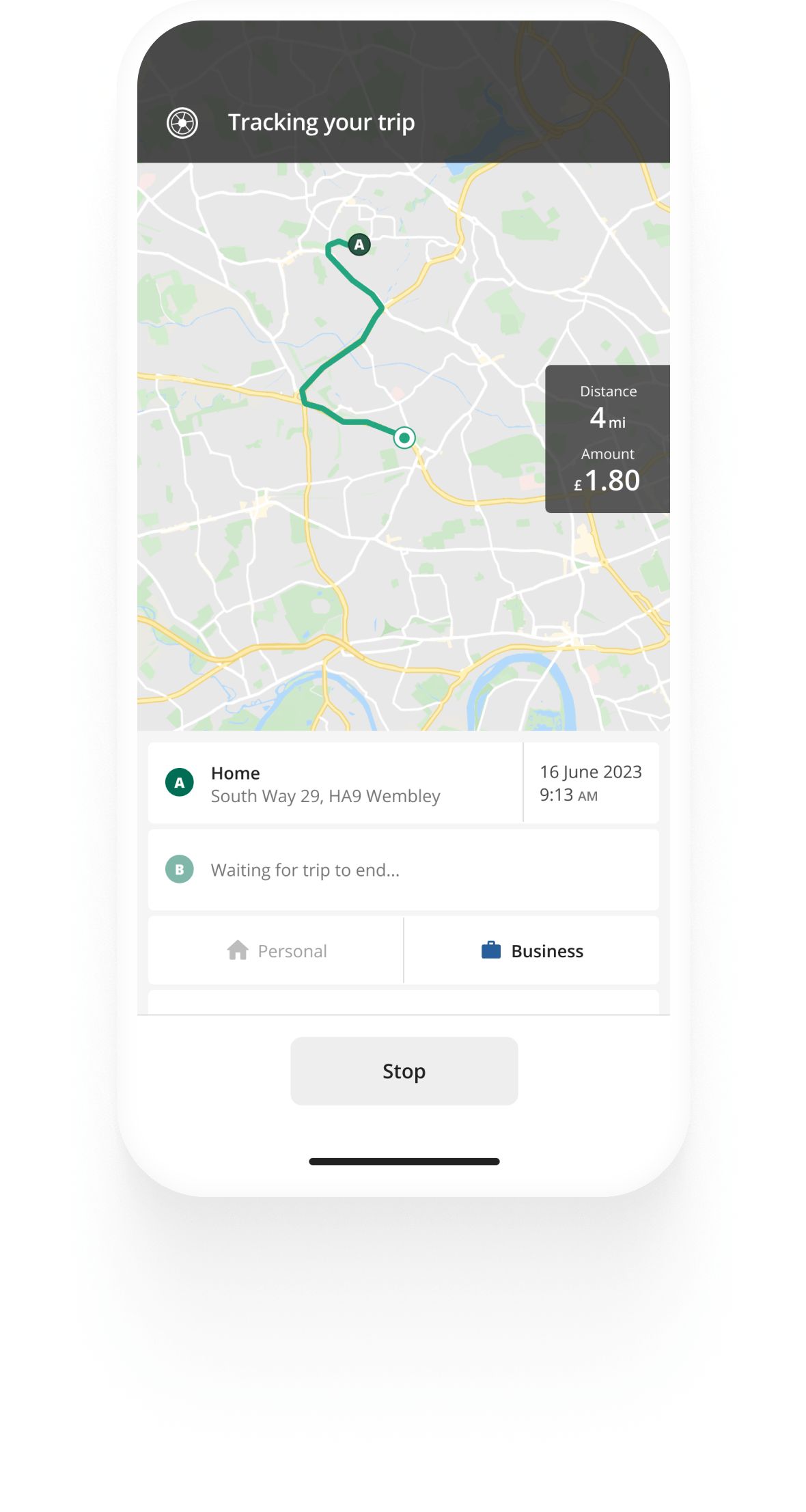Track mileage automatically
Get startedHMRC mileage rates 2021
You need to use the HMRC mileage rate for 2021 when calculating your mileage reimbursement for the year. HMRC rates have remained the same since 2011 which means that if you are logging earlier trips, you can use the same mileage rate.
The mileage rate is meant to simplify the record-keeping process, ease the administrative burden, and alleviate costs for both businesses and the tax authority. Generally, Mileage Allowance Payments (MAPs) and the simplified vehicle expenses flat rate (for self-employed) are supposed to cover the cost of owning and running your vehicle - including depreciation, insurance, and road tax.
If you use your private vehicle for work, you can be reimbursed by your employer tax-free based on these rates. Alternatively, if your employer opts to give you a smaller allowance than the approved mileage rate, you can claim Mileage Allowance Relief (MAR) on the remaining balance.
With Driversnote you can share your vehicle log book with the HMRC or your employer at the touch of a button. Try the mile tracking app for free.
2021 HMRC mileage rates
These are the current business mileage rates approved by HMRC for 2021:
| Vehicle | First 10,000 miles | Over 10,000 miles |
|---|---|---|
| Cars & vans | 45p | 25p |
| Motorcycles | 24p | 24p |
| Bicycles | 20p | 20p |


Mileage tracking made easy
Trusted by millions of drivers
Automate your mileage log Automate your mileage log

Automatic mileage tracking and HMRC-compliant reporting.
Get started for free Get started for freeWhat is the 2021 mileage rate for employees?
If, as an employee, you use your private car for business mileage, you can receive an allowance based on the rates from your employer. If you want to know more about Mileage Allowance Payments (MAPs), check our article on mileage allowance.
If your employer reimburses you at a lower rate than HMRC's advisory mileage rate, head to our guide on how to claim Mileage Allowance Relief.
Can I use the 2021 HMRC mileage if I’m self-employed?
As self-employed, you can claim tax deductions on your business mileage and other business-related travel expenses by using these HMRC mileage rates. There are two schemes for claiming business mileage - one is based on the above rates set by HMRC (known as the simplified expenses method) and the other is based on actual vehicle expenses. You can learn more about the rules that apply to you and how to claim mileage as a self-employed person.
Can I use a different rate than the 2021 HMRC mileage rate?
Although HMRC has set the mileage allowance rate, employers are allowed to use a different rate than the standard one.
If your employer reimburses you at a lower rate, you can apply for mileage allowance relief from HMRC at the end of the tax year to cover the difference. For example, if you receive 30p per mile, you can claim tax relief on the difference of 15p per mile for cars and vans. Similarly, if a business chooses to provide an allowance that is higher than the HMRC rates, the excess will be taxed.
If you need help with setting up a reimbursement system for your employees, you can try our Teams solution. If you need assistance to get started, you can get in touch at support@driversnote.co.uk.
FAQ

Tired of logging mileage by hand?
Effortless. HMRC-compliant. Liberating.
HMRC mileage guide
- For self-employed
- For employees
- HMRC mileage claim in 5 steps
- Self-employed mileage allowance records
- Car allowance for employees
- Salary sacrifice car scheme
- Mileage Allowance Relief
- HMRC mileage rate 2022
- HMRC mileage rates 2021